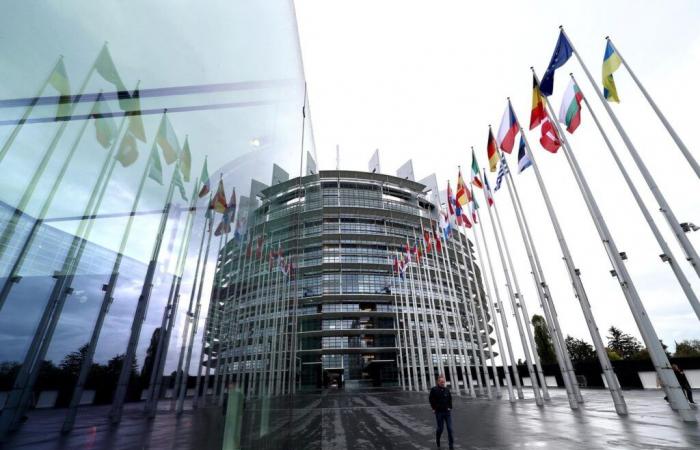
The directive on the duty of vigilance (CSRD), which had been adopted last year by the European Parliament, seems to have lead in the wing, at least in its current form. France officially asked, Friday, January 24, its suspension. “Our companies need simplification, no additional administrative increase”justified on X the Minister French delegate in charge of Europe, Benjamin Haddad.
This directive is largely inspired by the French law on the duty of vigilance, promulgated in 2017. It requires companies to ensure respect for the environment and human rights in all their production chains around the world, it is -EDire including in their subsidiaries but also their suppliers and their subcontractors. The first implementation was scheduled for July 2027, for 6,000 companies (those with more than 5,000 employees and a turnover greater than 1.5 billion euros), before generalization in 2029.
This suspension claimed by France, which joins Germany, has aroused an avalanche of negative reactions from NGOs. “” This, irresponsible position is likely to precipitate the unraveling of a necessary text in the face of the climate and social crisis », Said the friends of the Earth, Oxfam and Reclaim Finance in a joint press release.
Employer oppositions
This directive aroused strong opposition from the employers' circles, already standing against the implementation of the CSRD directive, in force since 1is January for large groups before its extension to all companies listed in 2027. It is a kind of green accounting, imposing on companies to harmonize their data of “on a European scale sustainability », In environmental, social and governance matters.
It too is far from being unanimous within the EU, since 17 countries out of 27, including Germany, have not transposed it into their national law. To the point that the commission launched against them offense procedures. Without effect to date.
France now joins the refractory by also asking for ” goodbye This CSRD directive. In its current form, it represents ” considerable costs » et « a patient For companies, said government spokesperson Sophie Primas, after the Council of Ministers on Wednesday, January 22. “” I believe that the European Union as a whole realized that it was too far She added. In November, the director general of BNP Paribas, Jean-Laurent Bonnafé, had even qualified this regulation ” bureaucratic delirium ».
-Competitiveness issues take over
On all these subjects, the wind indeed seems to have turned to Europe, with the return to the forefront of reindustrialisation issues and the fear of a downgrading, vis-à-vis the United States but also of China . In September, Mario Draghi, the former president of the European Central Bank (BCE) had drawn the alarm signal in a very noticed report. According to him, regulatory heaviness is among the major factors in EU's loss of competitiveness.
« The public authorities began to fear, when they realized that large European companies no longer responded to certain international markets, because they were not certain at 100 % to control the practices of their money -Traitors, despite all their efforts », Says a boss of the CAC 40, by castigating “Thousands of boxes to meet to meet the criteria ». « We are engaged in the decarbonation of our processes, but the CSRD obliges us to reveal our industrial secrets to our competitors ”deplores a cement maker for its part.
The Commission is preparing “a simplification shock”
Today, the new commission seems ready to let go, with the presentation on February 26 ” a massive simplification shock “, According to Stéphane Séjénéné's formula, the Vice-President of the European Commission, in charge of industrial strategy.
« It is reductive to see these directives only from the angle of the burden. The idea is to structurally modify the way companies work by taking better account of the social and environmental dimensionsjudge Yvan Terel, lawyer in the GKA & Associés firm. It is a big return which, in the end will penalize the most virtuous companies ». It remains to be seen in what way these guidelines could be amended and with which calendar.





